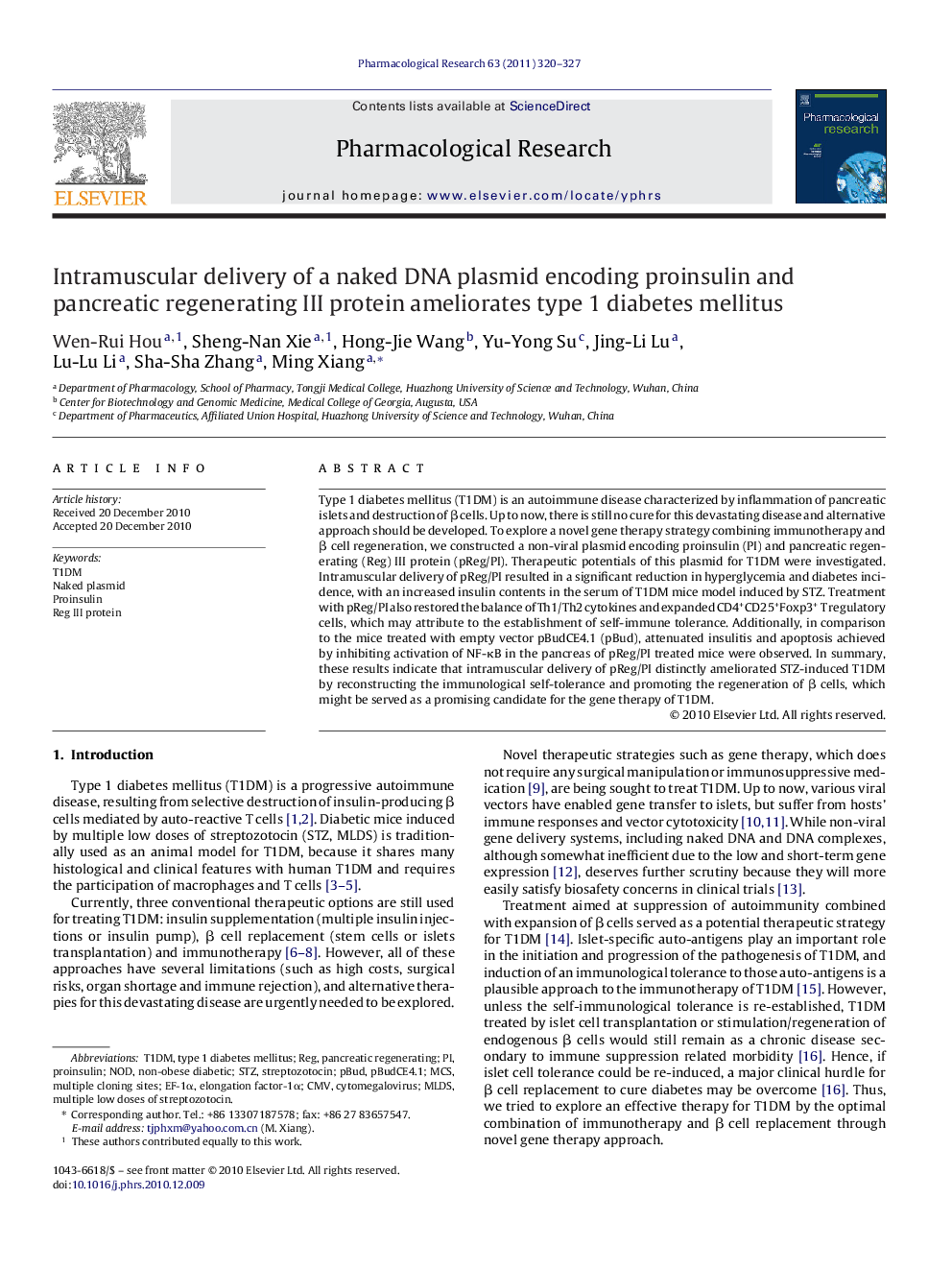| کد مقاله | کد نشریه | سال انتشار | مقاله انگلیسی | نسخه تمام متن |
|---|---|---|---|---|
| 2562168 | 1127073 | 2011 | 8 صفحه PDF | دانلود رایگان |

Type 1 diabetes mellitus (T1DM) is an autoimmune disease characterized by inflammation of pancreatic islets and destruction of β cells. Up to now, there is still no cure for this devastating disease and alternative approach should be developed. To explore a novel gene therapy strategy combining immunotherapy and β cell regeneration, we constructed a non-viral plasmid encoding proinsulin (PI) and pancreatic regenerating (Reg) III protein (pReg/PI). Therapeutic potentials of this plasmid for T1DM were investigated. Intramuscular delivery of pReg/PI resulted in a significant reduction in hyperglycemia and diabetes incidence, with an increased insulin contents in the serum of T1DM mice model induced by STZ. Treatment with pReg/PI also restored the balance of Th1/Th2 cytokines and expanded CD4+CD25+Foxp3+ T regulatory cells, which may attribute to the establishment of self-immune tolerance. Additionally, in comparison to the mice treated with empty vector pBudCE4.1 (pBud), attenuated insulitis and apoptosis achieved by inhibiting activation of NF-κB in the pancreas of pReg/PI treated mice were observed. In summary, these results indicate that intramuscular delivery of pReg/PI distinctly ameliorated STZ-induced T1DM by reconstructing the immunological self-tolerance and promoting the regeneration of β cells, which might be served as a promising candidate for the gene therapy of T1DM.
Figure optionsDownload as PowerPoint slide
Journal: Pharmacological Research - Volume 63, Issue 4, April 2011, Pages 320–327